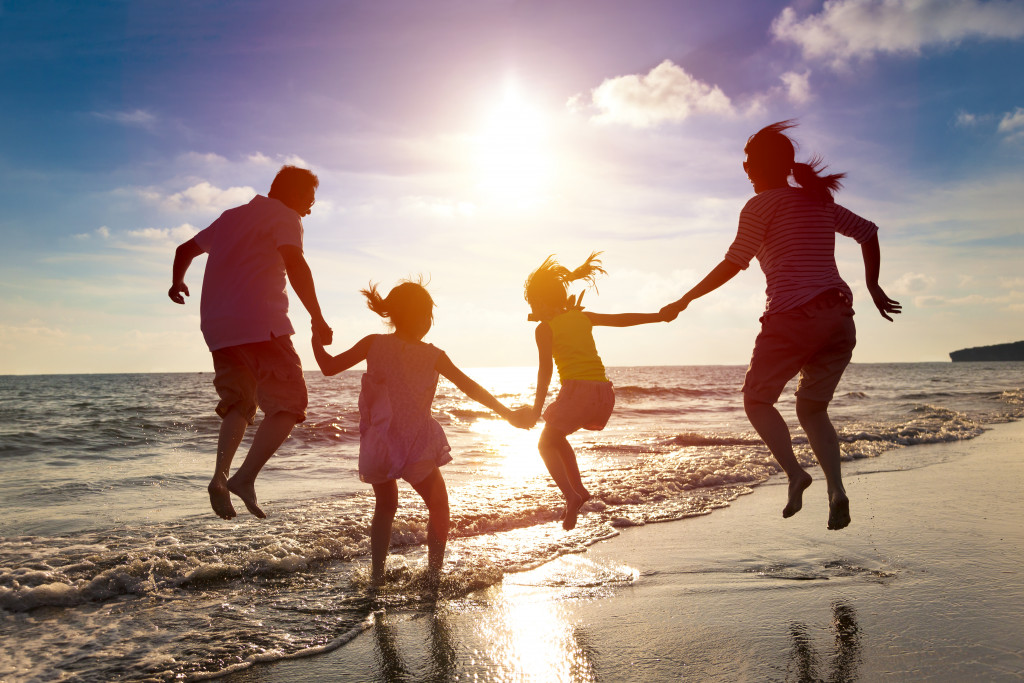Family travels can be the perfect moment to enjoy new experiences, create memories, and acquire new knowledge. It also allows your family to enjoy diversity, interact with new people, and explore cultures. However, not doing your research and ignoring your overall safety can quickly turn your trip into a nightmare. Many tourists forget about the different dangers of traveling to new territory.
That makes it the primary reason for prioritizing your overall safety during the planning phase. Here’s a list of six tips that will keep your family safe while traveling on foreign land.
1. Make the Necessary Preparations
Drafting a plan is essential if you’re planning a trip with your family. Depending on your chosen destination, you might have a lot of planning to do and things to think about, like exchanging currency, traveling via public transport, and getting to the airport. Bear in mind that things will not always go according to plan, so drafting a contingency plan is also essential. You should encourage everyone to join the planning stages.
It’ll ensure that you’re on the same page, especially during accidents. It’ll also be best to learn about your destination. One way to do that is by reading traveler reviews and talking to locals to gather more information about the crime rates, places to stay, and neighborhood. It’ll also help you identify who you should call for emergencies.
Get the contact information of the nearest police station, consulate, embassy, or other local emergency departments.
2. Learn First Aid and Prepare the Kit
It’ll also be essential to appoint someone to manage the family’s medicine kit. You can’t avoid accidents, especially for children who love exploring. Traveling to remote areas can lead to your children fracturing their ankles, grazing their palms or knees, or tripping over. Hence, you’ll have to prepare yourself. Bring the right first aid tools, including the following:
- Disinfectants
- Antibacterial creams
- Surgical scissors
- Antiseptic sprays or wipes
- Arm slings
- Pain relievers
- Bandages or Band-Aids
- Allergy medications
- Medical-grade tapes
- Tweezers
- Ice packs
- Gauze pads
If the worst happens, having travel insurance will medical repatriation and evacuation will provide much relief. It’ll give you access to air or road transport and assistance from trained medical practitioners.

3. Get Vaccinated to Avoid Diseases
Due to the COVID-19 pandemic, other countries have implemented strict travel requirements and restrictions. For example, other places will require travelers to get vaccinated. Other countries might compel you to bring your COVID-19 test results or risk being put in quarantine or turned away at the immigration office. It’ll be quicker and safer to comply with the health protocols. You’ll have to ask your physician and local authorities about the requirements for kids.
Bear in mind that every country has specific regulations for international travel, and they can change without notice. Hence, you’ll have to check with the local embassy to ask about the latest requirements and what to prepare before traveling.
On top of the current pandemic, you should check with your physician if your family needs vaccinations for other infectious diseases. Here are other vaccines to consider:
- Varicella, the chickenpox vaccine
- Haemophilus influenza type B
- Diphtheria-Tetanus-Pertussis (DTaP)
- Hepatitis A and hepatitis B vaccine
- Measles-Mumps-Rubella-Varicella (MMRV)
- Measles-Mumps-Rubella (MMR)
- Pneumococcal conjugate vaccine (PCV13)
4. Get Travel Insurance for Everyone
Your family will also benefit from travel insurance. You can’t avoid accidents or dangers, but you can always protect your loved ones. Having good travel insurance can provide you with financial protection while ensuring your belongings are safe if they get stolen or lost. It should also be your minimum protection because accidents can happen, and airlines can cancel without notice.
Most policies offer customizable benefits, including outpatient and inpatient coverage, which can help offset medical bills when traveling. Other families also supplement their travel insurance with a comprehensive health insurance plan. Usually, their healthcare plans come with a broader range of health benefits and higher limits, allowing you not to worry about paying for your medical bills.
5. Try to Blend in With the Residents
Outfits or accessories that make you look like you’re a tourist will make you vulnerable to crimes, so it’ll be important to blend in with your surroundings. Find pieces of clothing that will not draw much attention. Be discreet in checking the local maps and approach people with caution if you need to ask for directions. Investing in protective gear and clothing might also help make it more challenging for people to steal personal items.
6. Find Ways to Secure Your Rooms
Most hotels will use strict security measures, but you can’t avoid accidents. Making your hotel rooms safer is another tip you’ll have to remember. Keep your blinds closed or lock the doors. You can buy a jammer, a portable device you can slip under the door for more protection. Try to give an impression that your room isn’t empty when you’re away.
You can either keep the windows or blinds closed or hang a sign on your door. It’s also common knowledge not to let strangers enter your home, even if they claim they work for the hotel. You can always confirm with the front desk to check whether they’ve asked someone to come to your room.
Following this guide will ensure your family is safe and happy during your travels, but the unexpected can always happen despite your preparations.
